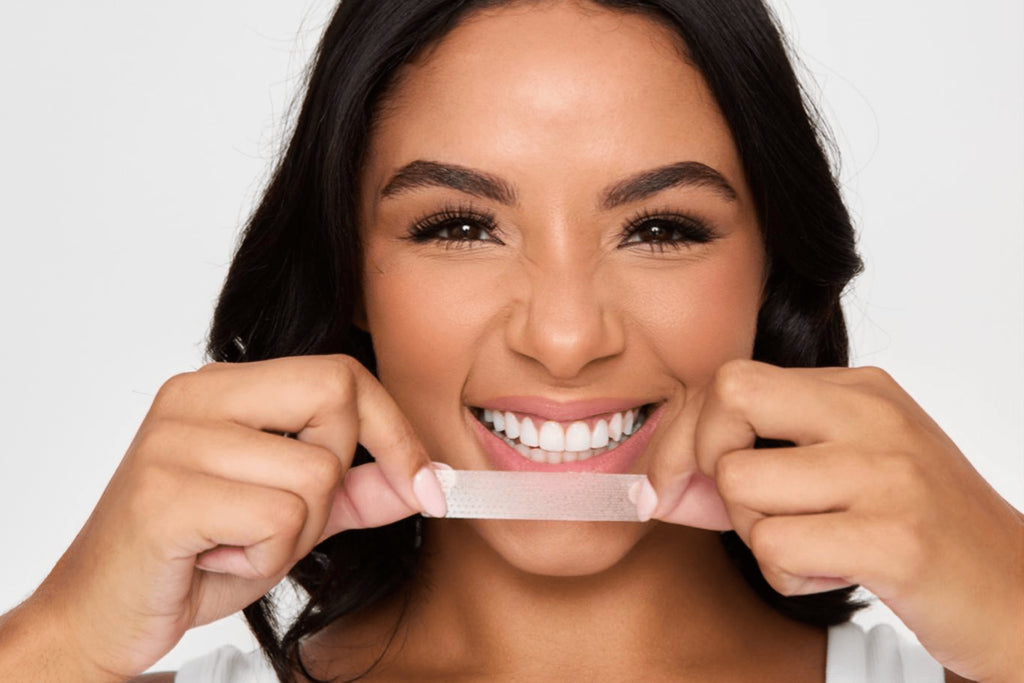Are Teeth Stain Removers Safe? Myths vs. Facts

When it comes to achieving a whiter smile, many people turn to teeth stain removers. However, with so many products and opinions out there, it’s easy to get caught up in myths and misconceptions. So, are teeth stain removers safe? Let’s dive into the facts, bust common myths, and help you find the best whitening options for a brighter, healthier smile without compromising your oral health.
Myth 1: All Teeth Stain Removers Damage Your Enamel
Fact: This is not true!
Many believe that teeth stain removers erode tooth enamel, but this isn’t the case with high-quality products. Enamel-safe formulas are designed to gently lift stains from teeth without causing harm. It’s essential to choose products with effective whitening ingredients that protect your enamel while promoting healthier teeth.
Myth 2: Natural Remedies Are Always Safer Than Store-Bought Products
Fact: Natural doesn’t always mean gentler.
DIY methods such as baking soda or lemon juice may seem harmless, but they can be too abrasive, leading to tooth decay or enamel erosion. Professionally formulated products use active whitening ingredients that are both safe and effective, making them ideal solutions for tooth stains without risking damage.
Myth 3: Teeth Stain Removers Work Instantly
Fact: Whitening teeth isn’t an instant magic trick.
While some products can deliver quick results, true, lasting whiteness takes time—especially with deep-set stains. Consistent use of whitening toothpaste or powders as part of your regular oral hygiene routine is key to maintaining a brilliant smile.
Myth 4: Teeth Stain Removers Cause Tooth Sensitivity
Fact: Not always.
Sensitivity often results from improper use or low-quality products. High-quality products with enamel-safe formulas are less likely to cause discomfort. If you have sensitive teeth, look for products designed to reduce sensitivity while effectively removing stubborn stains.
Myth 5: Once You Whiten Your Teeth, They Stay White Forever
Fact: Maintenance is key.
Your teeth can still pick up coffee stains, tea discolouration, or age-related staining over time. Think of whitening like skincare—you need regular touch-ups and consistent care to keep your tooth shade bright and even.
Types of Teeth Stain Removers: What’s Safe?
1. Whitening Toothpaste: Gently polishes the tooth surface, removing surface stains while supporting overall oral health.
2. Teeth Whitening Powder: Effective for lifting surface stains when used with regular brushing, promoting clean teeth without harsh abrasives.
3. Whitening Mouthwash: A perfect addition to your oral health routine, helping reduce new stains while freshening breath.
4. Whitening Strips and Kits: Targets intrinsic stains beneath the enamel but should be used as directed to prevent sensitivity.
Are Teeth Stain Removers Safe for Daily Use?
Yes — especially products designed for daily use, like whitening toothpaste and mouthwash. For more intensive treatments, such as whitening strips, follow usage guidelines to maintain excellent care without overdoing it.
What Should You Look for in a Safe Teeth Stain Remover?
1. Enamel-safe formula
2. Clinically tested ingredients
3. Minimal abrasives
4. Fluoride for cavity protection
When to Consult a Dentist
If you have sensitive teeth, gum disease, or severely discoloured teeth, it’s a good idea to consult your dentist before starting new whitening products.
Final Thoughts: What’s the Best Way to Brighten Your Smile?
Teeth stain removers are safe when used correctly. The key is choosing products with effective whitening ingredients, maintaining a solid oral hygiene routine, and being patient with your results.
For a complete solution, check out the Porcelain Care Teeth Brightening Bundle from Icy Bear. It’s an all-in-one bundle designed to help you achieve brighter, healthier teeth safely and effectively—perfect for daily use to maintain that radiant glow.
FAQ's
Can teeth stain removers weaken my enamel?
No, when used as directed, teeth stain removers do not weaken your tooth enamel. Products designed with enamel-safe formulas gently lift stains from the tooth surface without causing harm. In fact, regular use of quality products supports both stain removal and overall oral health, helping you maintain healthier teeth over time. When used excessively or incorrectly, some products can pose risks. However, enamel-safe formulas are designed to prevent this, ensuring excellent care with proper use.
How often should I use a teeth whitening toothpaste?
You can use whitening toothpaste daily as part of your oral hygiene routine. It’s designed for consistent, safe use to tackle stubborn stains while supporting strong, clean teeth. Pair it with regular brushing and flossing to keep your smile looking its best and to prevent new stains from forming.
Are teeth stain removers safe for sensitive teeth?
Yes, many teeth stain removers are formulated for sensitive teeth, using gentle ingredients that won’t irritate your enamel. If you have sensitivity, look for products that offer enamel protection and avoid highly abrasive options. Using fluoride-based products can also help strengthen enamel and prevent discomfort during stain removal.
Do whitening mouthwashes actually help with stain removal?
Yes, whitening mouthwashes are effective for maintaining a whiter smile, especially when combined with toothpaste and regular cleaning. They help prevent food debris and surface stains from building up, keeping your teeth fresher and brighter. Plus, they support your overall oral health by reducing bacteria and promoting fresh breath. They work best when used consistently as part of a complete oral care routine alongside brushing and flossing.
Will teeth stain removers work on dental restorations like veneers or crowns?
Teeth stain removers are designed to work on natural teeth, not on dental restorations like veneers or crowns. However, they can still help prevent age-related staining and maintain a consistent tooth shade. If you’re concerned about discoloured teeth around restorations, consult your dentist for advice on safe whitening solutions.



